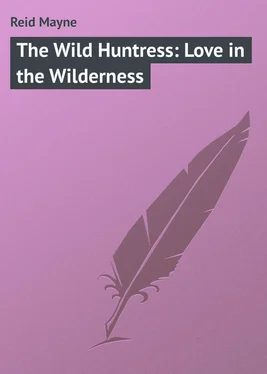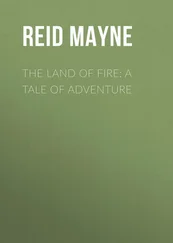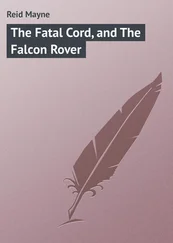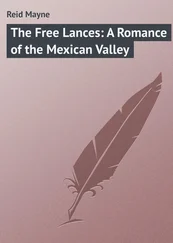Mayne Reid - The Wild Huntress - Love in the Wilderness
Здесь есть возможность читать онлайн «Mayne Reid - The Wild Huntress - Love in the Wilderness» — ознакомительный отрывок электронной книги совершенно бесплатно, а после прочтения отрывка купить полную версию. В некоторых случаях можно слушать аудио, скачать через торрент в формате fb2 и присутствует краткое содержание. Жанр: foreign_prose, на английском языке. Описание произведения, (предисловие) а так же отзывы посетителей доступны на портале библиотеки ЛибКат.
- Название:The Wild Huntress: Love in the Wilderness
- Автор:
- Жанр:
- Год:неизвестен
- ISBN:нет данных
- Рейтинг книги:3 / 5. Голосов: 1
-
Избранное:Добавить в избранное
- Отзывы:
-
Ваша оценка:
- 60
- 1
- 2
- 3
- 4
- 5
The Wild Huntress: Love in the Wilderness: краткое содержание, описание и аннотация
Предлагаем к чтению аннотацию, описание, краткое содержание или предисловие (зависит от того, что написал сам автор книги «The Wild Huntress: Love in the Wilderness»). Если вы не нашли необходимую информацию о книге — напишите в комментариях, мы постараемся отыскать её.
The Wild Huntress: Love in the Wilderness — читать онлайн ознакомительный отрывок
Ниже представлен текст книги, разбитый по страницам. Система сохранения места последней прочитанной страницы, позволяет с удобством читать онлайн бесплатно книгу «The Wild Huntress: Love in the Wilderness», без необходимости каждый раз заново искать на чём Вы остановились. Поставьте закладку, и сможете в любой момент перейти на страницу, на которой закончили чтение.
Интервал:
Закладка:
“I know the old general will be pleased – perhaps reciprocate the compliment in his next despatch – if I call this beautiful river ‘Smith.’”
“How the secretary will smile, when he sees his name immortalised upon my map, by a lake never to be dried up, and which hereafter is to be known by the elegant and appropriate appellation of ‘Jones!’” Under just such influence are these absurd titles bestowed; and the consequence is, that amid the romantic defiles of the Rocky Mountains, we have our ears jarred by a jumble of petty and most inappropriate names – Smiths, Joneses, Jameses, and the like – while, from the sublime peaks of the Cascade range, we have “Adams,” “Jackson,” “Jefferson,” “Madison,” and “Washington,” overlooking the limitless waters of the Pacific. This last series we could excuse. The possession of high qualities, or the achievement of great deeds, ennobles even a common name; and all these have been stamped with the true patent. In the associated thoughts that cling around them, we take no note of the sound – whether it be harsh or harmonious. But that is another question, and must not hinder us from entering our protest against the nomenclature of Smith, Jones, and Robinson!
Beyond Dresden, my road could no longer be termed a road. It was a mere trace, or lane, cut out in the forest – with here and there a tree “blazed,” to indicate the direction. As I neared the point of my destination, I became naturally curious to learn something about it – that is, about Swampville – since it was evident that this was to be the point d’appui of my future efforts at colonisation – my depôt and port entry. I should have inquired had I found any one to inquire from ; but, for ten miles along the road, I encountered not a human creature. Then only a “darkey” with an ox-cart loaded with wood; but, despairing of information from such a source, I declined detaining him. The only intelligence I was able to draw from the negro was that; “da ‘city’ o’ Swampville, massr, he lay ’bout ten mile furrer down da crik.” The “ten mile down da crik” proved to be long ones; but throughout the whole distance I saw not a creature, until I had arrived within a mile or so of the “settlement!”
I had been already apprised that Swampville was a new place. Its fame had not yet reached the eastern world; and even in Nashville was it unknown, except, perhaps, to the Land-Office. It was only after entering the Reserve, that I became fully assured of its existence; and there it was known as a “settlement” rather than a “city.” For all that, Swampville proved to be not so contemptible a place; and the reason I had encountered so little traffic, while approaching it, was that I had been coming in the wrong direction – in other words, I had approached it from behind .
Swampville was in reality a riverine town. To it the east was a back country; and its front face was to the west. In that direction lay its world, and the ways that opened to it. Log-shanties began to line the road – standing thicker as I advanced; while at intervals, appeared a “frame-house” of more pretentious architecture. In front of one of these – the largest of the collection – there stood a tall post; or rather a tree with its top cut off, and divested of its lower branches. On the head of this was a “martin-box”; and underneath the dwelling of the birds, a broad framed board, on which was legible the word “Hotel.” A portrait of Jackson, done in “continental uniform,” embellished the face of the board. The sign seemed little appropriate: for in the harsh features of “Old Hickory” there was but slight promise of hospitality. It was no use going farther. The “Jackson Hotel” was evidently the “head inn” of the place; and without pause or parley, I dismounted at its door.
I was too well used to western habits to wait either for welcome or assistance – too careful of my Arab to trust him to hands unskilled – and I did the unsaddling for myself. A half-naked negro gave me some slight help in the “grooming” process – all the while exhibiting his ivories and the whites of his eyes in an expression of ill-concealed astonishment, produced apparently by the presence of my uniform coat – to the “darkey,” no doubt, an uncommon apparition.
Chapter Eleven
The “Jackson Hotel.”
I found that I had arrived in the very “nick of time:” for just as I returned from the stable, and was entering the verandah of the hotel, I heard the bell calling its guests to supper. There was no ado made about me: neither landlord or waiter met me with a word; and following the stream of “boarders” or travellers who had arrived before me, I took my seat at the common table-d’hôte .
Had the scene been new to me, I might have found food for reflection, or observed circumstances to astonish me. But I had been long accustomed to mix in as motley a throng, as that which now surrounded the table of the Swampville hotel. A supper-table, encircled by blanket and “jeans” coats – by buckskin blouses and red-flannel shirts – by men without coats at all – was nothing strange to me; nor was it strange either to find these bizarre costumes interspersed among others of fashionable cut and finest cloth. Black broad-cloth frocks, and satin or velvet vests, were quite common. Individuals thus attired formed a majority of the guests – for in young settlements the “hotel” or “tavern” is also a boarding-house, where the spruce “storekeepers” and better class of clerks take their meals – usually sleeping in the office or store.
In glancing around the table, I saw many old “types,” though not one face that I had ever seen before. There was one, however, that soon attracted my attention, and fixed it. It was not a lady’s face, as you may be imagining; though there were present some of that sex – the landlord’s helpmate who presided over the coffee-pot, with some three or four younger specimens of the backwoods fair – her daughters and nieces. All, however, were absolutely without attraction of any sort; and I somewhat bitterly remembered the mot of double meaning, with which my friend had entertained me at parting.
Venus was certainly not visible at the Swampville table-d’hôte : for the presiding divinity was a perfect Hecate; and her attendant damsels could have found no place in the train of the Cytherean goddess. No – the face that interested me was neither that of a female, nor in any way feminine. It was the face of a man ; and that in the most emphatic sense of the word. He was a young man – apparently about four or five and twenty – and costumed as a backwoods hunter; that is, he wore a buckskin hunting-shirt, leggings, and mocassins – with bullet-pouch and powder-horn suspended over his shoulder, and hunting-knife sheathed in his belt. The coon-skin cap, hanging against the adjacent wall, was his head-dress: I had seen him place it there, before taking his seat at the supper-table. With the personal appearance of this young man the eye was at once satisfied. A figure of correct contour, features of noble outline, a face expressive of fine mental qualities – were the more salient characteristics that struck me at the first glance. Regarding the portrait more particularly, other details became manifest: round hazel eyes, with well-developed lashes; brows finely arched; a magnificent shock of nut-brown curling hair; a small, well-formed mouth, with white, regular teeth – all contributed to the creation of what might be termed a type of manly beauty. This beauty appeared in a somewhat neglected garb. Art might have improved it; but it was evident that none had been employed, or even thought of. It was a clear case of “beauty unadorned;” and the possessor of it appeared altogether unconscious of its existence. I need not add that this mental characteristic, on the part of the young man, heightened the grace of his personal charms.
Читать дальшеИнтервал:
Закладка:
Похожие книги на «The Wild Huntress: Love in the Wilderness»
Представляем Вашему вниманию похожие книги на «The Wild Huntress: Love in the Wilderness» списком для выбора. Мы отобрали схожую по названию и смыслу литературу в надежде предоставить читателям больше вариантов отыскать новые, интересные, ещё непрочитанные произведения.
Обсуждение, отзывы о книге «The Wild Huntress: Love in the Wilderness» и просто собственные мнения читателей. Оставьте ваши комментарии, напишите, что Вы думаете о произведении, его смысле или главных героях. Укажите что конкретно понравилось, а что нет, и почему Вы так считаете.












